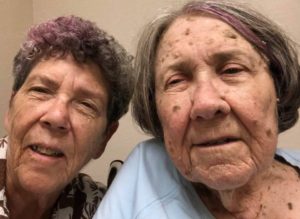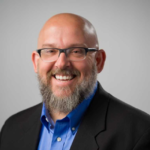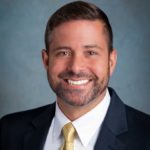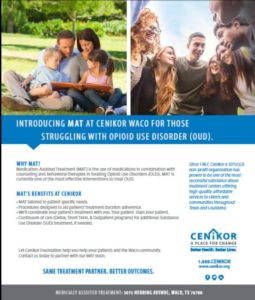By Maggie Sanders
June 21 is the day with the most light, and that’s when the Alzheimer’s Association shines light on this sad disease that robs loved ones of memories and personality. But when you’re caring for someone with Alzheimer’s or another dementia, every day can seem to last more than 24 hours.
My mom, Vivian Benson Sanders, is living with one of the severe dementias associated with Alzheimer’s disease. At 15, she was offered a full scholarship to Rice University – located less than two miles from her home – but her father refused his permission for her to attend. Now 94, she still painfully recalls how he stole her future.
But she doesn’t recognize me, my brothers or our children. Nor does she recall that my father passed six years ago and that our middle brother died two years before. She can’t remember how to walk and struggles with all activities of daily living. This scary smart lady who treasured words like precious jewels is losing her grasp of language, and our conversations are becoming a hodgepodge of unrelated and often unintelligible words and phrases.
When it became obvious four years ago that Mama could no longer live independently, our family decided to move her from Bryan, where my brother Ray had been looking after her, to Waco. At that point, I became her primary caregiver and began juggling work, my own family and other interests with meeting her needs. These have increased over the years, so two years ago I retired from the part-time teaching job I loved to be more available.
Fortunately, my mom is in a good memory care facility, but I still spend a lot of time and energy with her. She’s among the nearly 400,000 Texas adults over 65 who have Alzheimer’s disease or other forms of dementia. And I am just one of the approximately 1.5 million family members and friends caring for a loved one in the same situation.
The care takes its toll on our bodies, minds and spirits — and drains family finances. In Texas last year, caregivers provided approximately 1.6 billion hours of unpaid care with a total value of $20.5 billion. We deal with stress, lack of sleep and lack of support. We are reminded to take care of ourselves, but that doesn’t always seem possible.
My caregiver’s journey has been eased thanks to the local Alzheimer’s Association chapter. Even before I moved my mom to Waco, I had helped with the annual Walk to End Alzheimer’s, and that helped me tap into some of the resources the group offers. I’ve since attended several support groups and the annual caregivers conference. I continue to work with the walk committee and try to volunteer with other projects as needed.
Locally, the Waco Chapter of the Alzheimer’s Association provides a range of caregiver support groups where family members can meet others sharing similar situations.
- Heart of Waco Caregiver Support Group, 6-7 p.m., Second Monday of each month at Heartis Waco Assisted Living and Memory Care. Contact Donna Ginsel at 254-717-4805 or Bobby Don Saylor at 940-595-9355.
- Hillcrest Senior Health Center, 10-30-11:30 a.m., Second Wednesday of each month at the Hillcrest Senior Health Center. Contact Renee Shepherd at 254-537-3731 or Laura Ellis at 254-202-6500 or Bobby Don Saylor (above).
- Early Stage Support Groups. Separate sessions allow Caregivers and Persons with Disease to meet separately for support, information and socialization. Prescreening is required. Contact Christine Schroeder-Moran of the Waco Alzheimer’s Chapter at 254-754-7722.
- The Gathering Place provides social interaction and support for caregivers and their loved ones. The program meets from 10-11 a.m. the first Tuesday of each month at Austin Avenue Methodist Church. Contact Sandi Snowden at 713-553-7061, Pam Butler at 254-755-2248 or Bobby Don Saylor (above).
- The annual Caregivers Conference, always the first Friday in March, is an excellent opportunity to hear about the latest research and to gather tools you can use in your own journey.
- This year’s Waco Walk to End Alzheimer’s will be Saturday, October 5, at Brazos Park East.
To learn more about these resources or to ask questions, contact the Waco Chapter Alzheimer’s Association at 254-753-7722 or alz.org/northcentraltexas

Maggie Sanders is a freelance artist and writer. She retired from McLennan Community College, where she worked in the public information office and taught marketing.
The Act Locally Waco blog publishes posts with a connection to these aspirations for Waco. If you are interested in writing for the Act Locally Waco Blog, please email [email protected] for more information.
By Kelli McAdams
The Heart of Texas Region system of care, “Our Community Our Future (OCOF),” was created in the Fall of 2015 when a committee of community stakeholders came together to look at the mental health needs of children and adolescents in our community. The intention of the “system of care” is to create new opportunities for collaboration, to discover new revenue streams and to braid funding across agencies, in an effort to identify and fill gaps in services for children, youth, and young adults in our community.
OCOF’s overall mission is “Collaborating with and connecting families through a shared community vision to provide a culturally responsive continuum of care so children, youth and young adults are supported in becoming healthy and successful in the Heart of Texas region.” Since 2015, through continued and new collaborations with community partners, OCOF has helped to establish new programs in three major area: School Based Mental Health services, Transition Age Youth services, and Youth Crisis Respite services.
School Based Mental Health services address mental health needs within the educational system. This is done by placing a counselor and case manager at individual school sites to serve the most intensive mental health needs of the children and adolescents at that school. These in-school mental health professionals make it possible for children and adolescents to receive the care they need with minimal disruption to their school day. Having the mental health professionals in the school provides for quick and easy access to a counselor or case manager during times of crisis and allows for collaboration with school staff to best meet the student’s needs. At the end of 2018, the School-Based Mental Health program had 18 mental health staff at 40 campuses across 10 school districts. The program has become a model for the area, with nearby school districts taking notice and requesting information. Multiple school districts have also demonstrated confidence in the program through financial contribution to maintain sustainability.
Transition Age Youth (TAY) services support youth and young adults, between the ages of 18-22, who are transitioning into adulthood. TAY services connect these young people to mental health services that help them to obtain stable housing, to establish healthy adult relationships, and to achieve education and employment goals. The program’s Case Manager, Supported Education and Employment Specialist, and Program Manager were also recently trained in the unique developmental needs of transition age youth, strategies to support engagement with this population, and the adapted Individual Placement and Support (IPS) model of supported employment. The TAY program currently has a caseload of approximately 30 individuals, and consistently remains at capacity.
The Youth Crisis Respite House (YCRH) is a six-bed, short-term, living-room model, respite facility for youth between the ages of 13-17 who are experiencing a mental health or behavioral health crisis. The intention is to provide respite service within our community in order to reduce the number unnecessary out-of-home placements such as juvenile placement, CPS placement, or psychiatric hospitalization. After many months of preparations and creative funding, the YCRH recently received the approval by The Texas Health and Human Services Commission (HHSC) to open the facility and begin serving youth. Since opening its doors in late March, the house has successfully served five youth and continues to receive referrals.
In addition to these services, the OCOF includes family advocates who work to make sure families have a voice in the system of care. Family partners and family representatives work alongside and support families in their journeys, and OCOF created a Parent Cafe which provides a space for parents and caregivers to gather together, share information, and support one another.
OCOF’s current community partners include:
- Bill Logue Juvenile Justice
- Central Texas Youth Services
- China Spring ISD
- The Cove
- Connally ISD
- DFPS – Child Protective Services
- Education Service Center Region 12
- Hill County Juvenile Probation Department
- Hillsboro ISD
- Klaras Center for Families – Heart of Texas Region MHMR
- LaVega ISD
- Lorena ISD
- Marlin ISD
- Midway ISD
- NAMI Waco
- Prosper Waco
- Robinson ISD
- Starry Counseling
- Unbound
- Waco ISD
- Waco Center for Youth
- Whitney ISD
- VASA / Voice

Kelli McAdams, LCSW, is the Program Director for Youth Crisis Respite House at the Heart of Texas Region MHMR. She is a Licensed Clinical Social Worker and has a master’s degree of Science in Social Work with a concentration in mental health as well as a bachelor’s degree in Social Work, both from the University of Texas at Arlington.
By Summer Shine
Most people are affected by alcoholism or addiction in one way or another, whether it’s their own struggle, or a family member or a friend. The disease of addiction and alcoholism has infiltrated our everyday lives. It’s become so prevalent that the CDC proclaimed the opioid crisis in northern states is becoming a national crisis. According to a recent study by the Surgeon General’s office, 1 in 7 Americans suffer from drug or alcohol addiction. Many are touched, but few know what help there is for people who have this disease.
When I decided to get sober in 2013 I, fortunately, had previous experience with recovery and family and friends who were still willing to help. Not all who are afflicted are as lucky as I was. Many find themselves without resources or on long waitlist to get into any sort of treatment facility. Another challenge is that after a short term stay, typically 30-60 days, clients in recovery are expected to figure out a new lifestyle, housing and a recovery plan, with very little assistance. This becomes a major turning point for many people who are seeking long term recovery. What are they to do? Where are they to go? Who is their new support system? These can be stressful and confusing times.
Sober living communities are popping up all over the country as solution to this problem. These homes offer safe, affordable housing in an environment where a recovery lifestyle is commonplace, and mistakes are used as learning tools. Most Sober Living Houses (SLH) require participation in 12-step recovery programs, have straight forward house rules and adhere to probation requirements.
Another study by National Center for Biotechnology Information shows that people in recovery who live in short-term housing for 6-9 months after treatment have a 70% better chance of staying sober for 2 or more years than people who go straight back into old environments.
In 2015 when Sunshine Recovery House opened its doors, there were 5 sober living houses for men in the Waco area and none for women. Historically women are underserved both in addiction recovery and in mental health services. Being a woman in recovery and having many close female friends who are both in recovery and have mental illness, I found the lack of resources disturbing and appalling.
Not being one to take the sidelines when there is a problem to be solved, I addressed the issue and opened a sober living house here in Waco for women! We currently rent 2 small houses close to the old Hillcrest. We have nine beds and are usually full with a waitlist. We recently formed as a nonprofit organization and are raising money to purchase one large house close to downtown that will house 12-14 women and host a live-in house manager.
Waco has been an amazing advocate for Sunshine Recovery House! We’ve seen people come out of the woodworks (figuratively and literally) to show us support and help us expedite the process. It’s been both heartwarming and awe inspiring to see the amount of love people have shown us. More importantly we have been privy to seeing the lives of women in this community radically changed. We’ve seen miracles happen and that is the real game-changer. Women get their kids back, pay off debt, find wonderful careers, go to school, finish probation or clear CPS cases. THESE ladies are the reason we fight through the hard times, and trust me, there are hard times.
I am lucky. I’m lucky to have women in my life who are fighting the same fight I am, who show up to support me and who make the simple, yet hard decision to allow God to change them completely. I’ve learned along the way that I can only keep what I’ve been given, freedom from active addiction, by giving it away.
If you, or someone you love is suffering from addiction or alcoholism, know that there is help. There are 2 treatment facilities in the Central Texas area and a whole host of them in DFW and Austin. More sober living houses are being opened and often I am seeing young people get sober before they have had to suffer some of the same consequences that many have. It’s hopeful and magical and God induced. Some may say it’s a lofty goal to want to eradicate addiction and alcoholism all together, but why not try?
Rollin’ 4 Recovery

Join us March 23rd for a night of laughter, music, food, fun and friends. Comedian Shayne Smith is unapologetically goofy and recants his experiences through hilarious rants about life as a real gangsta….er, geek! Hear some sick beats laid down by Waco’s own Ryan Thomas as he takes us on a lyrical journey through interpretive spoken word, also known as rap. Enjoy a delicious meal provided by Waco’s #1 food truck Club Sandwich and signature mocktail beverages provided by Luna Juice Bar. Not to mention the savage live auction items up for grabs. Trust us, you won’t want to miss this night! If you’d like to mail a check for sponsorship or tables please mail to: Sunshine Recovery House 1516 Austin Ave Suite 3 Waco, TX 76701 Rollin’ 4 Recovery
- March 23 – 7 PM
- Brazos Event Center, 520 Elm Ave.
- General admission $50 – $70. VIP and Table Sponsor opportunities available. Click here for Tickets: Rollin 4 Recovery.

Summer Shine is Owner / Operator / General Juice Slinger at Luna Juice Bar and a Hip Hop Dancer at God’s Great Kingdom.
The Act Locally Waco blog publishes posts with a connection to these aspirations for Waco. If you are interested in writing for the Act Locally Waco Blog, please email [email protected] for more information.
By Matthew Hoffman, MA, BCC
We began, about three years ago, the “Good Friends Volunteer Spiritual Care Program” out of a conviction that within our city, there is a “community of healers,” who if given proper training, in some very basic spiritual care and visitation ministry, under the help and guidance of our professionally trained Staff Chaplains, could come into the hospital context and make a difference in the lives of people in need.
Since we began this volunteer program, with now, visits numbering into the thousands, having taken place, this hypothesis has born itself out to be true, that there are everyday people, who can stand as “healers,” in sacred places, like that of a patient’s room, and by doing so, can make a profound, health giving difference in the trajectory of people’s lives.
Here in Waco, we are seeking to take the “Good Friends” program and pilot a new version of this to help mobilize volunteers from local bilingual/Spanish speaking congregations to the help advance the care of our Spanish only speaking patients. Coming into a hospital can be a very anxiety producing experience. How much more so if you speak a different language than the majority of your healthcare team? By being a member of the Good Friends program as a bilingual volunteer you will be a welcomed presence offering prayer as desired, a listening ear and making people aware of the other spiritual care resources that would be available to them.
- Through the Good Friend Program you will be trained in areas of:
- How to minister to the spiritual and emotional needs of the sick.
- Discover the unique nature of hospital ministry.
- How to care for people of diverse religious traditions and cultures.
- Being a ministry of presence
- The ministry of active listening
If you would like to be part of the Good Friends program as a bilingual volunteer, or if you just want to grow in your ability to care for sick within your own faith community (for pastors, who would like to send members to this training for added help in their congregation, please do so!), join us on Monday, March 25 from 1-430pm at the Allison Auditorium at Baylor Scott and White Health-Hillcrest Hospital. You can RSVP to Chaplain Matthew Hoffman @ [email protected]

Chaplain Matthew Hoffman is a Board Certified Chaplain who serves at the system level as a Manager of Baylor Scott and White Health’s Faith In Action Initiatives (CTX). He oversees the development of various spiritual care programs in many of BSWH’s hospitals within its Central Division, as well as its local and international humanitarian aid and medical missions programs.
The Act Locally Waco blog publishes posts with a connection to these aspirations for Waco. If you are interested in writing for the Act Locally Waco Blog, please email [email protected] for more information.
By Gary Wardlaw
I was four when my pops left. I remember it being dark and there was yelling—a lot of yelling. A door slammed, the car started and it was four years before seeing him again. I didn’t know it then, but from that moment on, I would grow up in what our society calls a “broken family.” This meant that there would be no father in the home to teach me how to shave or how to respect women. No one to teach my sisters what respect and real love looked like from a male. The chances of experiencing a home with two loving parents became a faint longing. As a result…depression, low-self-esteem, anxiety, anger, insecurity, lack of self-acceptance, daddy issues, commitment issues, all of that and more ran rampant through our childhood. I did not know it then, but that night would go on to impact me in ways I could not have imagined.
I wish that was where relationship ruptures ended…but it wasn’t. Soon, bigotry and racism became another method that exacerbated the negative view I had accepted of myelf. It was sixth grade when the new girl moved to my hometown. She was smart, beautiful…and blonde. Her dad, well, he was the new head surgeon in town. While I won’t bore you with the nuanced details, I will share what I remember as “the phone call.” I ask to speak to her over the phone only to hear that their daughter could no longer speak to me. If she wanted to mess up her life when she is 18 then that is her choice. From then, to my freshman year in college, the same cycle repeated. I like girl…girl likes me…we date…parents find out…relationship ends because of my color, not my character.
How are the stories that I shared relevant to the Relationship Clinic of Waco? Well, they are my lived experiences, and these experiences are part of what made me want to establish a practice where relationships can be made whole and where people can heal from racism. Through my own counseling journey, I was able to discover that attachment injuries from my broken family system played a major role in the way I negatively viewed myself. Why did my dad not want me? Why was I good enough to be entertainment on the field or on the wrestling mat, but not good enough to date? The logical answers I was able to come up with were…”you are not good enough and you are not worth it.” These core beliefs opened up the flood gates of my mental health struggles.
Maybe your story is not that your dad left when you were a kid. Perhaps your story is that you are in a new romantic relationship and before saying “I do,” there are some things you want and should talk through. Or maybe you want to strengthen your relationship, or you are seeking to mend a relationship that has ruptured in the past but that you haven’t taken the time to repair. Whatever your story may be, whether it’s with a spouse, parent, sibling, boss or even relationship with God, I am fully-committed and well prepared to come along side of you in your journey of reconciliation, development and restoration.
 My wife and I wanted to establish this practice here in Waco to be a resource for our community. We love Waco and we firmly believe that The Relationship Clinic will help our city become a stronger community by helping relationships thrive, bringing families closer, and by eradicating racism. If you or someone you know could benefit from seeing a therapist, take the next step and visit our website. There you can learn more about me and our practice. You can also schedule a free 15-minute consultation or book your appointment. Our website is www.trcwaco.com.
My wife and I wanted to establish this practice here in Waco to be a resource for our community. We love Waco and we firmly believe that The Relationship Clinic will help our city become a stronger community by helping relationships thrive, bringing families closer, and by eradicating racism. If you or someone you know could benefit from seeing a therapist, take the next step and visit our website. There you can learn more about me and our practice. You can also schedule a free 15-minute consultation or book your appointment. Our website is www.trcwaco.com.
So now that you know how The Relationship Clinic was birthed from and why we started, I’d like to end by sharing our vision, mission, purpose statements and services:
Our Vision
To see:
- Relationships live up to their fullest potential
- Relationships strengthened and restored
- Marriages, families, and other interpersonal relationships thrive
Our Mission
To see relationships made whole. We want to help people overcome the resistance and reservation often associated with counseling by helping them focus on living in healthy community with others. As reflective in our marriage, we believe functional relationships are essential to anyone’s healthy well-being.
Our Purpose
We recognize that we live in a world that revolves around relationships. At some point in the circling of people in your life, it is inevitable that conflict will arise. We are committed to personal resolve and conflict management.
Conflict can arise between a husband and wife, brother or sister, parent and child, a boss and employee, and even Christ followers and God. No matter the dynamic, relationships are inherently woven in the threads of life.
Here at The Relationship Clinic, we specialize in facilitating the process of maintaining, creating, or restoring relationships in the following situations
- Shaken to its core and couples are at a loss on how to bring it back (i.e. infidelity, loss of love
- Have decided to embark on the journey toward marriage (i.e. engaged)
- Have said “I Do”, but have recently lost the connection that was once there,
- Walked away from the Christian faith,
- Interested in exploring the potential for a new relationship.
Products and Services
- 50-minute pre-marital therapy sessions
- 50-minute marital therapy sessions
- 50-minute individual sessions
- 90-minutes group marital sessions
- Relationship Enrichment Weekends (Marriage Lock-Inns)
- Tele-mental Health or Therapy (Online Counseling)
- Race-Relation Counseling
- Workshops/Seminars
 Gary Wardlaw is the founder and co-owner of The Relationship Clinic of Waco. He is licensed as a Professional Counselor in Texas and Virginia and is licensed as a Marriage and Family Therapist in Virginia. Prior to relocating to Texas, Gary served in a Christian group practice where he primarily saw couples and families. He also has experience working on adolescent, adult, and geriatric psychiatric units. Gary graduated from Liberty University in 2012, earning his M.A. in Marriage and Family Therapy. He has recently developed a passion to combat racism through discussion and education, while helping those who have experienced racism outwardly or systemically though talk-therapy. He can be contacted at [email protected] or by calling 254-294-7572.
Gary Wardlaw is the founder and co-owner of The Relationship Clinic of Waco. He is licensed as a Professional Counselor in Texas and Virginia and is licensed as a Marriage and Family Therapist in Virginia. Prior to relocating to Texas, Gary served in a Christian group practice where he primarily saw couples and families. He also has experience working on adolescent, adult, and geriatric psychiatric units. Gary graduated from Liberty University in 2012, earning his M.A. in Marriage and Family Therapy. He has recently developed a passion to combat racism through discussion and education, while helping those who have experienced racism outwardly or systemically though talk-therapy. He can be contacted at [email protected] or by calling 254-294-7572.
The Act Locally Waco blog publishes posts with a connection to these aspirations for Waco. If you are interested in writing for the Act Locally Waco Blog, please email [email protected] for more information.
By Cynthia Cunningham
Ready or not, the holiday season is upon us! I know, it seems like we were just relaxing on our summer vacation. Suddenly, we are flooded with holiday commercials, sales, and music. This festive whammy can knock us off our feet if we are not prepared.
Why can’t we move calmly through the shopping, decorating, cooking and socializing? Could it be that we believe we need to have the “perfect” holidays? After all, that’s what all the holiday movies on Lifetime show us! If they can hold it all together and have the ideal holidays, why can’t we?
First of all, forget Lifetime movies!! After all, they have a whole crew who builds those amazing sets to create the ideal family home decorated beautifully for the holidays. Their lovely laid tables with the perfect food is often not real food. And their families, who get along lovingly, are actors reading a script! What does this tell us? It’s NOT real!! So we must stop comparing our lives to these shows!
So here is our reality: Holidays bring stress, anxiety, depression and just a feeling of being overwhelmed with trying to manage it all! It’s the time of year that we are more aware of the people we have lost and when we deal with loneliness. It does not matter your age, we can all be overcome with these feelings.
Secondly, the key to manage your mental health during the holidays is to be mindful of what you are expecting to accomplish. Start with a “To Do” list. Write down everything that you wish to accomplish. Next, break down the items on your “To Do” list and put them on your calendar. This allows you the opportunity to tackle things one day at a time. Seeing things that you need to accomplish on one day is less overwhelming than the whole long list. And you will feel proud each day you are able to mark off a completed item.
Thirdly, allow those around you to help. I know, the kids don’t decorate the tree exactly the way you want it done. Release that control and see how proud they are of what they have created. Or if that doesn’t work for you, sit down with the family and your “To Do” list and see who will agree to take on which task. This shows your family that you are a unit together. And you are teaching younger generations how to handle the holiday chores.
Fourth, to manage those feelings of depression, keep connected. I know this is not always easy. Find ways to volunteer within your community. There are always organizations that can use help. You will be amazed how helping others can chase away those depressed feelings. Or take advantage of the fun activities happening in your community. You could take a class on making ornaments, join a group going caroling or visiting nursing homes during their craft time. If these activities feel too much for you, ask your family and friends to check in on you. There is no shame in admitting that you struggle during the holidays. When you are open about your feelings with them, it gives them permission to be a part of helping you through the rough times.
Fifth, when dealing with a loss, embrace the happy memories. You can create a new tradition to keep the memory of your loved one alive. For example, if they had a cause that was dear to them, find a way the family can help that cause. Again, check in with your family and friends and let them know if you are struggling with the loss and ask for help getting through the holidays.
Lastly, just know that nobody’s holiday is perfect. Just enjoy the companionship that comes during this time of year. These are the memories that you will treasure in the future. Do your best to focus on these relationships because they are the true gifts of the holidays.
 Cynthia Cunningham teaches mental health education classes and advocates for better care. She has been married over 30 years to her high school sweetheart and is the proud mother of an amazing daughter.
Cynthia Cunningham teaches mental health education classes and advocates for better care. She has been married over 30 years to her high school sweetheart and is the proud mother of an amazing daughter.
The Act Locally Waco blog publishes posts with a connection to these aspirations for Waco. If you are interested in writing for the Act Locally Waco Blog, please email [email protected] for more information.
By Eric R. Jeter
In the midst of the opioid crisis, communities across the country face increased demands for prevention and substance use services.
According to the CDC young adult’s heroin use has more than doubled within the past decade. More than 90 percent of people who use heroin also use at least one other drug, 45 percent of people using heroin are also addicted to prescription opioid painkillers and that prescription opioid drug overdoses has increased threefold in the last three years. In addition, an estimated 2.1 million people in the United States are afflicted with Opioid Use Disorder (OUD) related to prescription opioid pain medicines in 2016. There’s an increasing number of infants born with opioid dependency and rising rates of diseases such as Hepatitis C, and HIV. It is safe to say that the United States is facing a very real crisis.
The silver lining in this cloud is that there are effective medications to treat opioid use disorder. The use of these medications in treatment is called MAT, which stands for Medication Assisted Treatment.
Many treatment programs and behavioral health providers are increasingly now provide MAT. Cenikor Foundation, a leading treatment provider with locations in Texas and Louisiana, offers MAT as one of multiple treatment methods.
In August 2018, Cenikor’s Waco Facility began offering MAT (Medication Assisted Treatment) services for Opioid Use Disorder (OUD) in its 3015 Herring Avenue location. Opened in 2012, Cenikor Waco provides treatment services for individuals affected by substance use disorders in its detox and short stay residential programs. With the addition of MAT to its treatment services, Cenikor Waco is widening access to treatment for the community and providing patient-focused treatment designed to meet individual needs, thereby changing and saving more lives.
The goal of the MAT program offered by Cenikor’s Waco Facility is to support an individual’s efforts to remain abstinent from opioids and other drugs of addiction through the use of counseling, medication and case management services. The philosophy of the program is one of compassionate care with an emphasis on participant safety and personal responsibility.
Medicated-Assisted Treatment (MAT) is the use of FDA- approved medications, in combination with counseling and behavioral therapies, to provide a “whole-patient” approach to the treatment of substance use disorders.
As we seek to provide services to help those with an opioid use disorder achieve lasting sobriety, we recognize that no treatment is “one size fits all”. Cenikor is committed to partnering with patients to design a treatment that best meets their needs. At Cenikor, we use new ways to gauge success beyond simply whether a patient in recovery has stopped using opioids. Our comprehensive approach aims to reduce relapse overdoses and infectious disease transmission among numerous outcome measures.
We continue to work with our referral partners as well as health care professionals to ensure individuals with opioid use disorder continue to have access to the most effective therapies.
Cenikor is a 501(c)(3) nonprofit organization, proudly serving over 1,000 clients per week to achieve better health and better lives. For more information please visit www.cenikor.org or call 1-888-CENIKOR.
 Eric R. Jeter has been with Cenikor Foundation since 2012. As Construction Manager he oversaw the construction and opening of Cenikor’s Waco facility. After successfully running the Waco short stay and detox program he advanced to Regional Director. Eric now manages the Waco, Austin and Tyler locations. Eric is deeply committed to Cenikor’s mission and helping those in need achieve better health and better lives. Additionally, Eric is the President & Owner of locally owned business Jeter Property, a custom home building and remodel company located in Waco.
Eric R. Jeter has been with Cenikor Foundation since 2012. As Construction Manager he oversaw the construction and opening of Cenikor’s Waco facility. After successfully running the Waco short stay and detox program he advanced to Regional Director. Eric now manages the Waco, Austin and Tyler locations. Eric is deeply committed to Cenikor’s mission and helping those in need achieve better health and better lives. Additionally, Eric is the President & Owner of locally owned business Jeter Property, a custom home building and remodel company located in Waco.
The Act Locally Waco blog publishes posts with a connection to these aspirations for Waco. If you are interested in writing for the Act Locally Waco Blog, please email [email protected] for more information.
By Cynthia Cunningham
This week we are observing Mental Illness Awareness Week (October 7 through October 13). Many do not think that this affects them because they do not have any mental issues. However, we are all touched by mental illness at some point in our lives. Maybe not directly ourselves but those around us: loved ones, friends or co-workers. The point I continue to emphasize is that we ALL need to educate ourselves so that we are prepared for when someone around us needs help.
Some Facts:
- Did you know that 75% of ALL chronic mental health conditions begin by the age of 24?
- 1 in 5 people WILL experience a mental health condition in their life.
- Roughly ½ of ALL lifetime mental health conditions start by the mid-teens.
- Mental Illness does not choose who is affected by it, but culture, race, gender or sexual orientation can affect access to treatment, support and quality of care for many.
- Racial Disparities in Mental Health Treatment: Of white health care providers, 51% believe that their patients do not adhere to medical treatments because of cultural or linguistic barriers. 56% report having no form of cultural competency training.
- 30% of active duty and reserve military personnel deployed in Iraq and Afghanistan have a mental health problem requiring treatment. Of the 30% less than half of returning Veterans in need receive any mental health treatment.
- Mental health of Firefighters and EMS Workers: First responders attempt suicide at a rate of 10 times higher than the general population. A firefighter is 3 times more likely to die by suicide than in the line of duty. 85% of first responders have experienced symptoms of mental illness at some point in their lifetime.
What is it like to care for someone with a mental illness?
In the U.S. there are 8.4 Million caregivers supporting people living with a mental illness and spend an average of 32 hours per week providing care.
Being a caregiver is stressful! Reach out to those caregivers you know. Offer to listen to them, take them out for some self-care, or learn what kind of support they would like.
Some Mental Illness Conditions:
Dual Diagnosis: What does it mean to have Dual Diagnosis?
Dual Diagnosis is when someone experiences a mental illness and a substance use disorder simultaneously. People with dual diagnosis should receive integrated treatment that addresses both substance use and underlying mental health conditions. Eight Million people in the U.S. experience dual diagnosis. More than ½ of all opioid prescriptions go to people with mental illness. Over 30,000 people died from opioid overdoses in 2015.
Borderline Personality Disorder (BPD)
Things you THINK you know about BPD:
- Untreatable
- Out of control
- Incapable of having healthy relationships
- Selfish
- Erratic
- Needy
- Impossible to please
Here are some FACTS:
- People with BPD experience extreme difficulty controlling their emotions, thoughts and actions, which complicate meaningful relationships.
- This lack of relationships and emotional support further complicates the illness. Separation or rejection can lead to self-destructive behaviors, self-harm or suicidal thinking.
Schizophrenia
How much do you know about Schizophrenia?
People living with Schizophrenia are 6 to 7 times more likely to be unemployed than the general population, with a 70-90% unemployment rate. 35% of people with schizophrenia have experienced homelessness or have been in jail. Schizophrenia interferes with a person’s ability to think clearly, manage emotions, make decisions and relate to others. It is a complex, long-term medical illness, affecting about 1% of Americans. It does not have a single cause either: genetics, environment, brain chemistry and substance use can all contribute to schizophrenia.
Obsessive Compulsive Disorder (OCD)
OCD is experiencing frequent, intrusive thoughts that lead to unwanted, excessive and irrational behaviors. These compulsive behaviors are often emotionally and sometimes physically painful.
Someone with OCD can learn positive coping skills. I learned from a woman, whose OCD made her late for work each day, that instead of running back into her home multiple times to make sure her curling iron and iron were turned off, she started bring them with her to the car. When she had that OCD panic that she left them on, she could look over and see them in the seat next to her. Learn what coping skills can help.
Suicide
90% of individuals who die by suicide experienced a mental health condition. We lose 22 Veterans by suicide each day. I have been told that in Waco we have 3 to 4 suicides per week! That is just the deaths that could be confirmed as suicide. However, some deaths are questionable so the numbers are never exact.
What do you do if you suspect someone is thinking of suicide? ASK
A – Ask them if they are thinking of killing themselves. No, asking does NOT put the thought into their mind. They are just hoping that someone around them will see how much they are struggling. They are using all their energy to fight these feelings that they cannot always ask for help. YOU can be their lifeline! Some have told me that they would be embarrassed to ask this and my reply is “would you rather be embarrassed a few seconds or go to their funeral”? It is THAT serious!!
S – Stay with them. Of course, keep yourself safe if they have a weapon first!! The amount of time that someone actually acts on the suicidal thoughts is a small amount. Never leave them alone during this time.
K – Know who to call for help! You are not an expert but you can seek help from those who are. Call 911!!
Post-Traumatic Stress Disorder (PTSD)
70% of adults in the U.S. have experienced some type of traumatic event at least once in their lives. This equates to approximately 233.4 million people. An estimated 8% of Americans (24.4 Million people) have PTSD at any given time. That is equal to the total population of Texas! An estimated one out of every nine women develop PTSD, making them twice as likely as men. Remember people of ALL ages can have PTSD, even small children.
Now that you have learned some mental health information, keep going!
Be a part of the StigmaFree Campaign by actively taking these three steps:
LIVE IT! Learn about mental health by educating yourself and others.
SHARE IT! Share StigmaFree on social media, strive to listen, tell your story and see the person not the illness.
SHOW IT! Take action on mental health issues, raise awareness and make a difference.
More information can be found here: https://www.nami.org/stigma
Help CureStigma!!
 Let us get rid of the shame for seeking help. No one thinks of anything of going to the doctor for heart problems, kidney problems or lung problems so why is there shame for seeking help for our brain? Learn what you can do here: https://www.curestigma.org/
Let us get rid of the shame for seeking help. No one thinks of anything of going to the doctor for heart problems, kidney problems or lung problems so why is there shame for seeking help for our brain? Learn what you can do here: https://www.curestigma.org/
Cynthia Cunningham will continue as the Act Locally Waco Mental Health blog coordinator, but she is leaving her position as Executive Director of NAMI. She shares this personal message:
“It has been an honor to work for NAMI Waco and my community. I found NAMI when my family desperately needed it. I knew absolutely nothing about mental illness. It not only helped save my daughter’s life but it gave her a future that we were worried that she would never have. A mental illness diagnosis does not have to be an end to a successful life. It just means a different path to get to where we are heading. I am proof that by educating yourself and those around you, you can save a life and make a difference!
Thank you to every place that has allowed me to come speak on topics of mental health, participate in trainings, provide resources and advocate for better mental health care. I do not know what the future holds for me but I know that I am blessed to have worked with so many wonderful people in this journey.” – Cynthia Cunningham
 Cynthia Cunningham, has been a Wacoan since age 2. She lives with her husband of 28 years, Bobby, and two spoiled dogs and one royal cat! Her passion is educating others about mental health.
Cynthia Cunningham, has been a Wacoan since age 2. She lives with her husband of 28 years, Bobby, and two spoiled dogs and one royal cat! Her passion is educating others about mental health.
The Act Locally Waco blog publishes posts with a connection to these aspirations for Waco. If you are interested in writing for the Act Locally Waco Blog, please email [email protected] for more information.
By Elana Premack Sandler, LCSW, MPH
“A suicide is like a pebble in a pond. The waves ripple outward.”
 Many years ago, my colleague Ken Norton, LICSW, director of NAMI New Hampshire, shared this quote, and it has stuck with me. Visually, when you see a pebble drop into a pond, it’s something small that makes a big impact.
Many years ago, my colleague Ken Norton, LICSW, director of NAMI New Hampshire, shared this quote, and it has stuck with me. Visually, when you see a pebble drop into a pond, it’s something small that makes a big impact.
The first “waves,” close by, are big, and as they move outward, they get smaller and smaller. The reach of the pebble’s waves is much greater than the size of the pebble itself.
When someone dies by suicide, the people impacted most dramatically are those closest to the person who died: family, friends, co-workers, classmates. As a result, the people who interacted regularly with the individual who ended their life will miss the physical presence of that person and typically feel the loss most intimately.
But, those people represent only the first wave, or the initial level of impact. Those people who are members of an individual’s community, such as members of a faith community; teachers, staff and other students in a school; or service providers, may also be affected by a suicide.
Some of these people may feel the impact in a way that feels similar to those closest to the person who has died. In a situation where the individual has struggled openly with mental health concerns, those who knew of the struggle will feel the pain of the loss—likely wondering if they could have done more.
People who may not have even personally known the individual who died can also be impacted. Like emergency medical personnel, law enforcement, clergy and others who respond and provide support to the family and community, either at the time of death or afterward.
Ultimately, in the way that a pond is changed because of a pebble, an entire community can be changed by a suicide. According to a 2016 study, it is estimated that 115 people are exposed to a single suicide, with one in five reporting that this experience had a devastating impact or caused a major-life disruption.
So, what can be done to manage the impact of a suicide, and work toward future prevention?
Work To Decrease Stigma
Stigma only leads to silence. And silence about a suicide loss does not contain the ripple effect—it just leaves people feeling isolated, as if they are facing this tragedy alone. When someone dies by suicide, the aftermath opens up an immediate opportunity to talk about suicide as a public health issue that affects all of us. We all have a role to play in prevention and decreasing stigma by sharing our stories.
Increase Support To The Community
The impact of a death by suicide can be vast, as people hear about suicides through the proverbial grapevine. Community hotlines and the National Suicide Prevention Lifeline (1-800-273-8255) should be advertised, and community groups, such as faith communities, may want to convene opportunities for people to come together to mourn and receive support. Peer support from people who have lost a loved one to suicide can be healing—it can be very powerful to know you are not alone and to connect with others who have also experienced suicide loss. The American Foundation for Suicide Prevention (AFSP) maintains a registry of support groups, including a specific list of survivor support groups.
For those who respond to a crisis, providing a way to process a suicide is different, though just as important, as providing support to those more intimately impacted by a death. Crisis responders need space and time to debrief in order to be able to continue to respond appropriately, both in terms of their own reactions and in the way they support those who have lost a loved one.
Help People In Need Access Mental Health Resources
For those struggling with suicidal thoughts, access to mental health treatment can be key to saving a life. If you personally know someone struggling, encouraging them to seek help —even helping them get to that first appointment—shows that you support them.
In the bigger picture, advocating for better insurance coverage for mental health treatment will allow more people to be able to access professional help. Schools, primary care offices and community programs serving people at risk can organize screening programs as long as there are resources in place to be able to effectively refer those at risk to appropriate treatment.
As we witnessed recently, a suicide by a celebrity can have widespread impact. For those who have lost loved ones to suicide, hearing of another death by suicide can be triggering and emotionally draining. For people who have survived suicide attempts themselves, media coverage of suicide may increase their own feelings of suicidality. And yet, paying attention to these deaths increases our collective awareness of suicide as a problem and highlights suicide prevention as a need.
When we grieve together, we realize the impact of one single life—one pebble in a pond.
 Elana Premack Sandler, LCSW, MPH is an Associate Professor of Practice and an Assistant Director of Field Education with SocialWork@Simmons. Since 2009, Elana has been blogging at Psychology Today on suicide and suicide prevention, with a focus on the intersection of mental health and social media.
Elana Premack Sandler, LCSW, MPH is an Associate Professor of Practice and an Assistant Director of Field Education with SocialWork@Simmons. Since 2009, Elana has been blogging at Psychology Today on suicide and suicide prevention, with a focus on the intersection of mental health and social media.
The Act Locally Waco blog publishes posts with a connection to these aspirations for Waco. If you are interested in writing for the Act Locally Waco Blog, please email [email protected] for more information.
By Jaja Chen
I often hear individuals make comments about teachers that make it seem as if they have it “well off” because of having summer vacations. While having summer off is a crucial part of teachers’ self-care and work-life balance, we often do not sit and consider the amount of energy, finances, or even time that teachers dedicate throughout the school year – year after year – to managing their classrooms and educating our children daily.
Oftentimes, teachers’ own self-care goes by the wayside because of the immense amount of needs they must tend to in their classrooms, amongst students, and to meet all the tasks and demands they face as a teacher – even outside of the classroom. This can lead to summer being used to “catch up” on sleep, health, and self-care.
While summer can be a huge part of teacher self-care, my hope is that summer is not the ONLY time when teachers are able to take care of themselves.
Here are three ways we as a community can seek to support our teachers in self-care as they return to the new school year:
1.) Honor and encourage our teachers – Coming from a Taiwanese background, educators are highly honored, valued, and esteemed. The culture of honor that East Asian cultures place on teachers is something we can learn from. How can we honor and encourage our teachers throughout the school year? Rather than making comments about how good they have it or how they shouldn’t complain about difficulties on the job due to having summer off, how can we seek to listen to and support our teachers as they deal with ongoing work-life stress?
2.) Support healing from secondary trauma & burnout – Compassion fatigue is a common experience amongst helping professionals and is a combination of secondary trauma and burnout. Secondary trauma occurs when we continually hear about or witness, directly or indirectly, traumatic events that occur to others. Working with students and families daily exposes teachers to traumatic events and can lead to secondary trauma. Burnout, on the other hand, is feelings of ongoing exhaustion and helplessness due to inefficiencies experienced in our jobs. When our teachers experience compassion fatigue, do we judge them or do we seek to understand? Do we point them to resources, such as individual counseling, or do we shame them? As administrators, do we seek to create policies and school cultures that enhance and support teacher self-care? Are we open to our teachers taking time off for their mental health or do we stigmatize mental health recovery?
3.) Volunteer for local school efforts & initiatives – Ensuring that our students and schools are successful and thriving is a community effort. Teachers are not the sole guardians for our children’s mental, emotional, physical health, and educations. We all have a role to play in our communities as we support teachers in their self-care. Part of this is seeing how we can play a role in supporting school initiatives, school events, and to inquire about ways to support schools as volunteers. Recognizing that we have a part to play in supporting our schools helps reduce the burdens placed on teachers to be everything to our children. Ways to be involved include supporting mentoring and tutoring programs that non-profit organizations-including Communities in Schools (CIS) and Prosper Waco – host for local schools. Local churches may also have after-school programs or book clubs to support children such as the STARS Mentoring Program.
The success of our schools requires a community effort.
What are ways you can support your local school today? And if giving of your time and/or finances is not a possibility, are there ways to connect with a fellow teacher and to encourage them as they begin their new school year. My hope is that the task of teacher self-care is seen as a community effort, not just placed on teachers themselves to figure out. There are ways that our culture and perspectives can hinder teachers from thriving in the amazing work they do. Let’s strive for creating a culture of compassion, authenticity, and empathy, as opposed to shame.
 Jaja Chen, LMSW, CDWF is a private practice therapist in Waco through Enrichment Training & Counseling Solutions specializing in trauma, compassion fatigue, maternal mental health, and difficult life transitions. As an EMDR Trained Therapist, Jaja’s passion is walking alongside helping professionals whom are healing from PTSD, depression, anxiety, secondary trauma, and burnout. Jaja can be contacted via email at [email protected] or via webpage at http://enrichmenttcs.com/meet-jaja-chen/
Jaja Chen, LMSW, CDWF is a private practice therapist in Waco through Enrichment Training & Counseling Solutions specializing in trauma, compassion fatigue, maternal mental health, and difficult life transitions. As an EMDR Trained Therapist, Jaja’s passion is walking alongside helping professionals whom are healing from PTSD, depression, anxiety, secondary trauma, and burnout. Jaja can be contacted via email at [email protected] or via webpage at http://enrichmenttcs.com/meet-jaja-chen/

